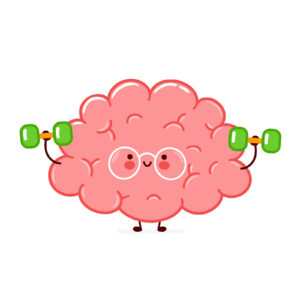In the world of sports, mental strength is often as crucial as physical prowess.
 Elite athletes aren’t just defined by their strength, speed, or skill but also by their ability to maintain focus, stay motivated, and manage pressure. A critical factor influencing an athlete’s mental state is self-talk—the internal dialogue that plays in their mind before, during, and after a performance. Whether it’s positive or negative, self-talk has a profound impact on anxiety levels and overall sports performance. This is especially true for equestrian athletes, where the role of self-talk significantly impacts how they perform and think about themselves.
Elite athletes aren’t just defined by their strength, speed, or skill but also by their ability to maintain focus, stay motivated, and manage pressure. A critical factor influencing an athlete’s mental state is self-talk—the internal dialogue that plays in their mind before, during, and after a performance. Whether it’s positive or negative, self-talk has a profound impact on anxiety levels and overall sports performance. This is especially true for equestrian athletes, where the role of self-talk significantly impacts how they perform and think about themselves.
So, you may be asking yourself what self-talk is.
Self-talk is our ongoing internal conversation with ourselves, often without realizing it. This inner dialogue can be positive, negative, or neutral, significantly shaping our emotions, thoughts, and behaviors. In many ways, self-talk is continuous; however, in sports, athletes need to be able to manage the conversations, especially prior to competition, during competition, and after competition. Before competition, it is helpful if the self-talk is positive and focuses on positive statements. It is most beneficial to have self-talk muted during competition or practice, and focusing on positive statements is most helpful after competition or practice. It may sound strange to mute self-talk during competitions or practice, but I will explain more.
Examples of self-talk statements include the following:
Positive Self-Talk:
Uplifting and encouraging thoughts that boost confidence and motivation. Making it a statement in the present tense and something you do well is an excellent way to start. (“I train every day.) For equestrians, it could be that I see every distance every time.
Negative Self-Talk:
Critical or self-defeating thoughts that foster doubt and insecurity. (“I always mess up when it counts.”) Equestrians ( I miss every distance every time.)
Neutral Self-Talk:
Objective observations or factual statements without emotional weight. (“I need to adjust my pace to improve.”) Equestrians: I am improving my skills at jumping.
While all types of self-talk can play a role, positive and negative self-talk tend to have the most significant effects on anxiety and performance.
Anxiety is common in both everyday life and competitive sports, often triggered by pressure, fear of failure, or the belief that high expectations are required. For athletes, performance anxiety can manifest as nervousness, fear of underperforming, or even physical symptoms like increased heart rate and muscle tension.
Self-talk has a direct influence on the intensity of anxiety an athlete experiences.
Negative self-talk tends to fuel anxiety, magnifying doubts and fears about performance. For example, thoughts like “I’m not good enough” or “What if I fail?” create a heightened sense of pressure and stress, leading to mistakes or underperformance.
Conversely, positive self-talk can help reduce anxiety by reassuring and calming nerves. Phrases like “I’ve prepared well for this” or “I’m in control” help athletes regain focus and diminish anxiety’s impact, enabling them to concentrate on their tasks.
Anxiety takes our energy and focus away from the present moment and places in the future. When we focus on anxiety, we are focusing on things that have not happened yet instead of being focused on what is happening now. If we are playing a sport or riding a horse, we need to be focused on the present moment and not think about something that has not happened yet. When we want to do something that is important to us, we often get an adrenaline rush as our body’s way of giving us the fuel needed to perform the task; if we associate this as anxiety or associate negative things with this feeling, then instead of seeing as the energy required, we will see it as something to avoid.
Research shows that cognitive-behavioral patterns, including self-talk, have a significant impact on anxiety.
When negative self-talk predominates, the brain activates the body’s fight-or-flight response, flooding the system with stress hormones such as cortisol. This heightens physical and emotional responses like rapid breathing, tension, and a racing heart—symptoms that exacerbate anxiety.
Positive self-talk, on the other hand, can trigger the relaxation response by promoting a sense of control and reducing stress. It can translate the body’s increased heart rate response as it is getting ready to exert physically and needs to respond correctly. Negative self-talk is one of the biggest mental obstacles an athlete and equestrians can face.
When we engage in negative dialogue, we inadvertently set ourselves up for poor performance in the following ways:
Decreased Confidence and Self-Esteem
 When athletes tell themselves they aren’t good enough or will fail, they undermine their confidence. Confidence is elusive and often fragile; however, it also needs to be nurtured and maintained like any other skill. When we feel confident, we believe we can do our sport or task without problems, and we often become more willing to take risks because we think we will be successful. This feeling of confidence also helps to allow us to stay focused on what we want to accomplish. A lack of confidence due to self-defeating thoughts may lead to an overall decline in performance.
When athletes tell themselves they aren’t good enough or will fail, they undermine their confidence. Confidence is elusive and often fragile; however, it also needs to be nurtured and maintained like any other skill. When we feel confident, we believe we can do our sport or task without problems, and we often become more willing to take risks because we think we will be successful. This feeling of confidence also helps to allow us to stay focused on what we want to accomplish. A lack of confidence due to self-defeating thoughts may lead to an overall decline in performance.
Increased Anxiety and Stress
As mentioned earlier, negative self-talk magnifies anxiety. Athletes may begin to focus too much on the potential for failure rather than on executing their skills. This heightened anxiety can impair motor skills and coordination, making it difficult to perform routine actions smoothly. As anxiety escalates, performance often plummets.
Poor Focus and Concentration
Negative self-talk distracts athletes from their goals. Instead of concentrating on their game strategy or technique, their mind becomes cluttered with doubts and worries. In fast-paced sports like basketball or tennis, even a momentary lapse in focus can lead to costly errors.
Choking Under Pressure
When athletes are consumed by negative self-talk, they are more likely to “choke” under pressure. Choking occurs when an athlete’s performance significantly deteriorates during critical moments. Instead of performing instinctively, the athlete overthinks, becomes tense, and cannot execute their skills properly. Just as negative self-talk can hinder performance, positive self-talk can significantly enhance it.
Athletes who practice positive self-talk experience a range of mental and physical benefits, including:
Boosted Confidence
Positive self-talk builds confidence by reinforcing the athlete’s belief in their abilities. When athletes remind themselves that they are prepared, capable, and resilient, they are more likely to face challenges head-on and persevere through difficult moments.
Reduced Anxiety
Positive self-talk helps athletes manage performance anxiety by keeping their thoughts grounded and focused. Reassuring statements like “I’ve done this before” or “I know how to handle pressure” help reduce fear and stress, allowing athletes to perform without excessive worry.
Improved Focus
Positive self-talk encourages athletes to stay in the present moment, essential for maintaining focus during competition. Instead of dwelling on past mistakes or worrying about future outcomes, athletes can use self-talk to direct their attention to their technique, strategy, and immediate goals.
Increased Motivation and Drive
Athletes who use positive self-talk are likelier to stay motivated, even in adversity. Encouraging phrases like “Keep pushing” or “I can do this” help athletes maintain their drive, pushing them to give their best effort until the end of a competition.
Developing Positive Self-Talk: Strategies for Athletes
While positive self-talk might not come naturally to everyone, it is a skill that can be developed with practice. Here are a few strategies athletes can use to cultivate a more positive inner dialogue:
Recognize Negative Thoughts
The first step to changing self-talk is recognizing when negative thoughts arise. Athletes should watch their internal dialogue and note negative thinking patterns, such as “I’m not good enough” or “I always mess up.”
Challenge and Reframe Negative Thoughts
Once negative thoughts are identified, athletes can work on challenging and reframing them. For example, if an athlete thinks, “I’m going to fail,” they can reframe it into a more positive statement: “I’ve worked hard for this, and I’m prepared to succeed.”
Practice Daily Affirmations
Incorporating daily affirmations into an athlete’s routine can help reinforce positive thinking. Phrases like “I’m strong,” “I’m capable,” or “I can handle challenges” can be repeated during training, before competitions, or even as part of a pre-game ritual.
Use Visualization Techniques
 Visualization is another powerful tool for promoting positive self-talk. By mentally rehearsing success—such as scoring a goal, completing a complicated routine, or winning a race—athletes can create a mental environment of positivity and confidence.
Visualization is another powerful tool for promoting positive self-talk. By mentally rehearsing success—such as scoring a goal, completing a complicated routine, or winning a race—athletes can create a mental environment of positivity and confidence.
Self-talk is a powerful tool that can either enhance or hinder sports performance, depending on how it’s used. While negative self-talk can lead to increased anxiety, poor focus, and a lack of confidence, positive self-talk can have the opposite effect—reducing stress, boosting confidence, and improving overall performance.
Start Working with An Equine Therapist in Virginia
Athletes of all sports or daily activities who harness the power of positive self-talk can enhance their mental resilience and gain a competitive edge. By encouraging, motivating, and empowering themselves through self-talk, athletes can improve their performance both in the sports arena and outside. As an equine therapist, I would be happy to offer support in cultivating healthier self-talk and helping you overcome past anxiety. Start your therpay journey with Gray Horse Counseling by following these simple steps:
- Schedule a free consultation if you want to learn more about how changing your self-talk can benefit you.
- Visit my FAQs and read more about me
- Start improving performance today!
Other Services Offered with Gray Horse Counseling
Equine-assisted therapy isn’t the only service offered by Gray Horse Counseling. I’m happy to offer therapy for men and a variety of other services to support the mental health of folks in Powhatan, VA, and across the state via online therapy. Other services at Gray Horse Counseling include individual therapy, depression therapy, anxiety therapy, group therapy, equine sports, clinical supervision, self esteem therapy, and trauma therapy. Check out my FAQs, read about me, and contact me today to get the help you deserve!

